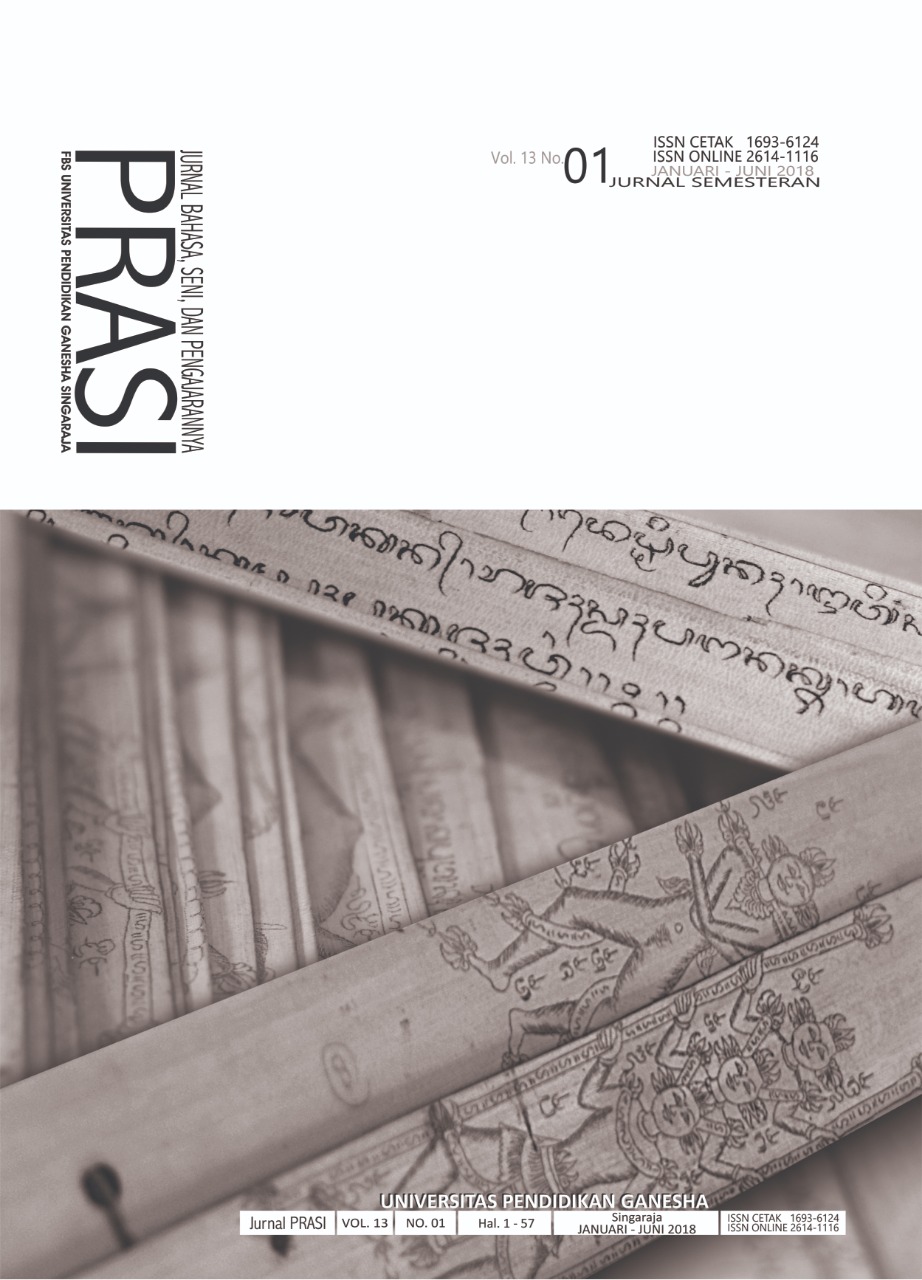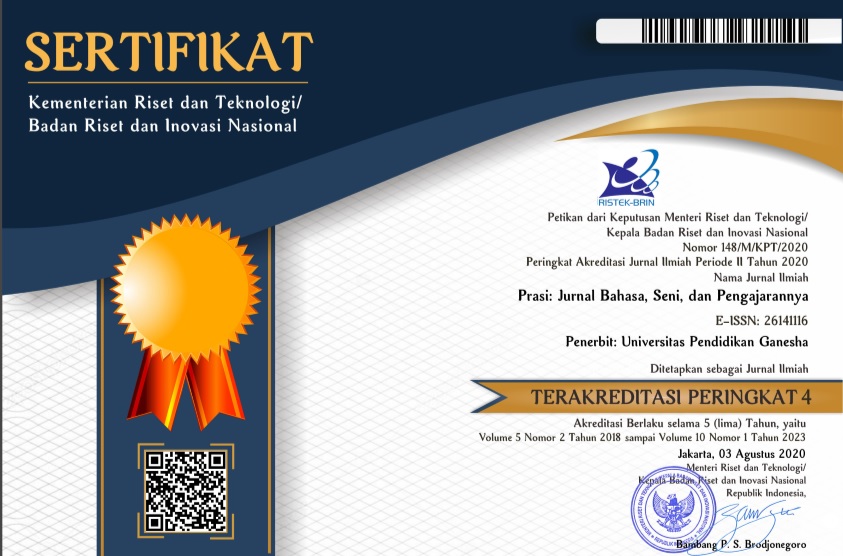PERMASALAHAN PADA PELAKSANAAN PEMBELAJARAN TERINTEGRASI DI PROGRAM STUDI PENDIDIKAN BAHASA JEPANG, UNDIKSHA
DOI:
https://doi.org/10.23887/prasi.v13i1.16444Abstract
The issue of integrated learning on the basic Japanese language skills, namely: Bunpou,
Choukai, and Kaiwa, had been raised since the establishment of the Japanese Education Department. A
recent evaluation study found that in the actual implementation of this integrated learning experience,
a number of problems need to be considered for the quality of learning process in the Department of
Japanese Language Education. The problems discussed in this paper are related to the implementation
of integrated courses and the issues that follow. This research conducted in the Bunpou, Choukai,
and Kaiwa classes in the 2016/2017. This study used a descriptive qualitative method with observation
and interviews techniques. The results found that problems in implementing this integrated learning
comprise: lecturers’ communication skills, conflicted time with other activities, and different teaching
themes from one lecturer to the other lecturers.
Keywords : Bunpou, Choukai, Kaiwa, integrated learning, Department of Japanese Language Education.
Downloads
Published
Issue
Section
License
Authors who publish with Prasi agree to the following terms:- Authors retain copyright and grant the journal the right of first publication with the work simultaneously licensed under a Creative Commons Attribution License (CC BY-SA 4.0) that allows others to share the work with an acknowledgment of the work's authorship and initial publication in this journal
- Authors are able to enter into separate, additional contractual arrangements for the non-exclusive distribution of the journal's published version of the work (e.g., post it to an institutional repository or publish it in a book), with an acknowledgment of its initial publication in this journal.
- Authors are permitted and encouraged to post their work online (e.g., in institutional repositories or on their website) prior to and during the submission process, as it can lead to productive exchanges, as well as earlier and greater citation of published work. (See The Effect of Open Access)


.png)
.png)









